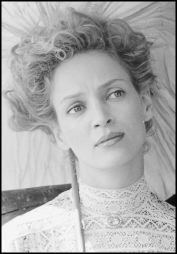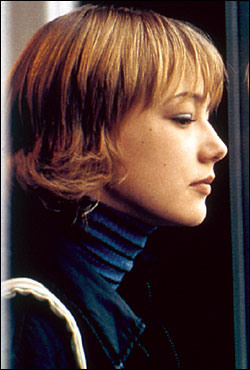It’s no fun when a favorite artist takes a leap and misses, even worse when it’s someone as clearly adventurous as Robert Duvall, with Assassination Tango (which opens Friday, April 4 at the Varsity). Behind the camera, he’s always looked into lives well out of the mainstream: the seductive, blandly amoral world of New York gypsies (Angelo, My Love); the highs and lows of a rodeo family (We’re Not the Jet Set); and, of course, Pentecostal fervor (The Apostle). If you want to ponder Oscar injustices, think of Duvall’s breathtaking immersion in 1997’s Apostle, losing to that Jack Nicholson performance in As Good As It Gets.
In each of the films Duvall has written and directed, atmosphere is all, and the story could have been scribbled on a matchbook cover. Well, Tango‘s threadbare plot would fit on a postage stamp. Duvall’s ponytailed John J., a hit man extraordinaire and avid dancer, is sent from his comfortable Brooklyn turf to Buenos Aires for what he swears will be his last job. He leaves a long-standing relationship with Maggie (Kathy Baker) and his promise to get home for her young daughter’s birthday. If this domesticity is meant to soften Duvall’s image, it fails, since there’s less than no chemistry between him and Baker.
What waits in Argentina is not just the killing of a retired general with an ugly past, but the tango. John J. discovers the dance after his split-second planning is screwed up when the general is late getting back to Buenos Aires. Holed up in a boarding house, tightly coiled and bored, John J. begins to prowl the night streets until he stumbles onto a tango bar and the riveting, long-legged Manuela (Luciana Pedraza).
The story goes to hell from here on, and whether you care or not depends entirely on Pedraza, Duvall’s girlfriend for the last seven years. Even if you love the how-tos of hit men (and there’s a beaut at the opening to show us how good John J. is at his craft), once these two get down to dancing, no one cares less about the plot than Duvall. Unfortunately, he doesn’t care much for dialogue or characterization, either.
Tango‘s real core is the domesticity of Manuela and her family, all of whom are equally passionate dancers of every age. One of the charms of this sweetly meandering section is that John J. must go through her elegant, omnipresent relatives to persuade Manuela to give him lessons. (The joke here is that although Pedraza is from Buenos Aires, it was Duvall who taught her to danceand to glide effortlessly over what little acting is required.)
No wonder the tango lured Duvall years agoit’s a dance where, for all the woman’s swirls and dangerous kicks, the man is unquestionably in charge. Would the rock-hard Duvall have it any other way? He knows, too, that there’s no real home for this alter ego of his, not in Buenos Aires or in Brooklyn. It’s Duvall’s recognition, conscious or not, that in addition to tensile strength, his essential quality is solitudenever more so than here, in the heart of two families.








